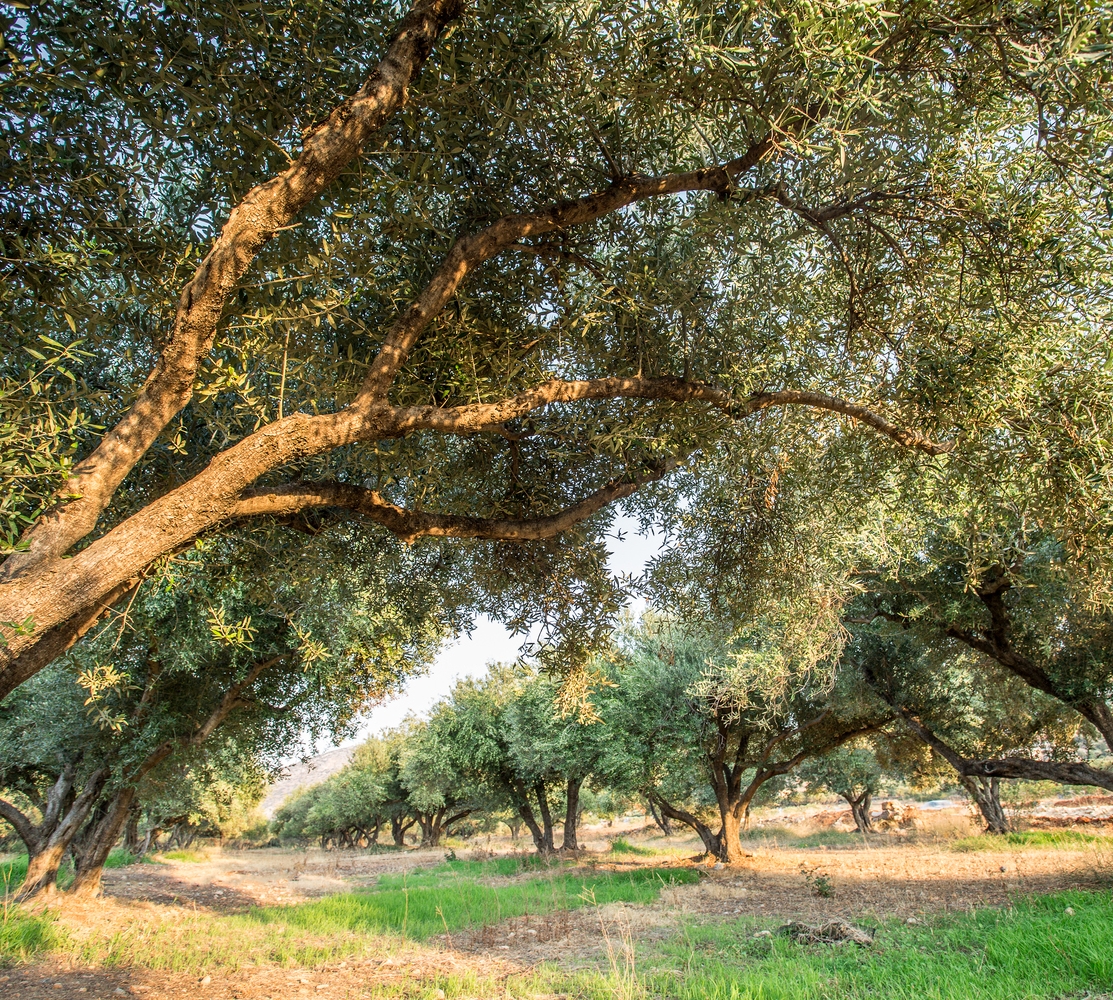History of the Olive
The history of the olive begins 7000 years ago and is intertwined with the life of the people of the Mediterranean, their everyday life and their habits. Historians regard the Mediterranean region as the place where olive trees first appeared
Nowadays, the cultivation of olive trees is extremely widespread throughout the Mediterranean and the consumption of the fruit is a basic element of the Mediterranean diet. The olive tree loves the sea and sun of the Mediterranean, grows even on barren soil and is extremely resilient in drought conditions.
Young olive trees need the care of the growers and start giving fruit at the age of 7. At the age of 30-70 they reach their maturity. The expected life of an olive tree is 300 to 600 years, but all over the world, there are olive trees more than 1000 years old.
In the Mediterranean region, olive trees flower in late spring while the harvesting of olives starts at the end of September and ends in February, depending on the variety of the olive.


The Greeks were the first people to cultivate olive trees in the European area of the Mediterranean region. This tree has accompanied Greeks not only in times of prosperity but in times of deprivation as well. The fruit, the oil and the branches of olives trees were used in trade, nourished generation after generation helping people grow healthily, and also provided longevity and protection from several illnesses. To Greeks, the olive tree is a blessed, valuable gift of nature, connected with Greek history and culture. The olive tree fruit has been considered sacred since ancient times.
According to mythology, the olive tree was the sacred tree of the city of Athens due to the fact that during the dispute of the Gods as to who will be the patron of Athens, Athena, the Goddess of wisdom, offered the people of Athens an olive tree, which was deemed by the citizens of Athens as more valuable to their life than the horse that Poseidon, God of the sea, offered them. Ancient Greeks considered the olive tree a symbol of kindness and nobility, while even today olive branches symbolize peace. The olive has been blessed since ancient times, a symbol of knowledge, wisdom, abundance, health, strength and beauty.
The symbolic meaning of olive was present in every aspect of Greek life, ever since ancient times up until today. It is characteristic that since 776 B.C. the only prize awarded to the Olympic winners was the “kotinos”, a wreath made of olive branch that symbolized peace and mandatory truce in ancient times, throughout the world, during the Olympic Games.
Even today, in agricultural regions of the country, when a child is born, an olive tree is planted. The olive tree and the child are to grow up together. When the child starts school at the age of 6, the olive tree is ready to give its first fruit. The olive tree will grow with the family, survive through time and will still be there for many generations to come, to remind us the continuity and the evolution of life.
For Greece and its people, the olive tree is more than a tree. It is culture, history, tradition and mythology. It is a symbol of peace.




